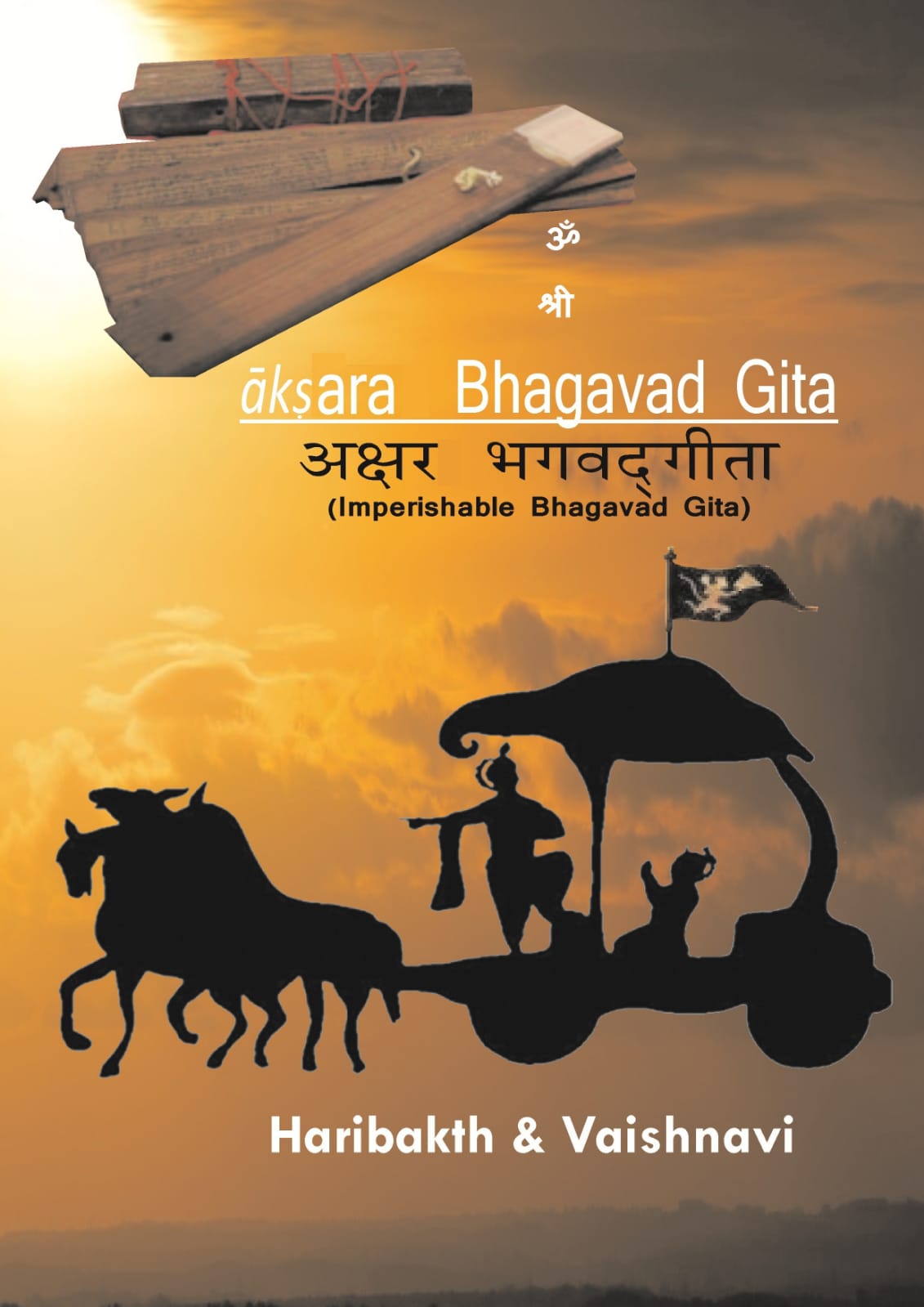Thanks to the recommendation by a friend, I happened to read the above book. If I weren’t recommended it, I wouldn’t have read it and would have remained a bigot afflicted with a “frog in the well “syndrome.
The book is based on the Gita, a part of the great epic Mahabharata. It takes inputs from other contemporary branches of knowledge like Science, Law, Grammar, management., logic, etc., and correlates it with the ancient wisdom of the Gita to blend it with modern-day perspectives to make it relevant in this 21st century.
This book is more of a self-help book blended with history, spirituality, and philosophy. The book is loaded with esoteric truths hitherto not revealed. It is put in the form of conversation for easier comprehension and for substantiation of truths propounded. For this, the author has gone into the skin of skeptics and dogmatists and attempted to answer all their possible objections and criticism and clear their doubts. In the process, the author has managed to widen the horizons of the bigots, dogmatists, zealots, and religious chauvinists, but only when they were open to reason.
The book has a storyline devised to make difficult concepts intelligible and also help keep the reader engaged throughout. It encourages them to form their own perspective, instead of relying on others’ perspectives. The approach used is participatory and interactive. The readers may accept it or reject it and can even argue and oppose the claims made therein.
The original text of Gita is believed to be more than 5,200 years old but with the passage of time people and other mundane branches appear to have evolved and Gita appears stagnant and irrelevant. This book seeks to remove this misnomer. Aksara Bhagavad Gita is an update/patch which makes modern-day knowledge and its periodic up-gradation compatible with the ancient and infallible Gita.
Based on this infallibility and imperishable quality of the Gita, Haribakth apotheosizes Bhagavad Gita thereby elevating it from a book to a deity.
It primarily revolves around Gita or principles and lessons that can be derived from it and applied into life not necessarily what we think the scriptures say but to synchronize our independent outlook and analytical mind with what scripture says and implies. The author underscores that scriptures always say and imply the same thing, it is the human mind which misinterprets it differently.
The book reminds us that God is One. God resides in everything. The authors have connected with the readers in a very interesting way sharing their thoughts and ideas showing how everything is a part of a supreme whole. The language used is very simple. The out of the box and unconventional thinking of the author has put its stamp across all the pages in his book.
The book emphasizes Vasudhaiva Kutumbakam or the global family and though we may appear different in color, religion externally, we belong to the cosmic family, headed by the supreme.
The conversation in the book is not just a normal conversation but talks revolve around God and His teachings in the Gita. Omniscience, omnipotence, and omnipresence are the characteristics that only one entity, the Lord possesses. The six opulence; strength, fame, wealth, knowledge, beauty, and renunciation is possessed by God to an unlimited extent, with other entities having it to a minuscule extent. These characteristics of God form the very foundation for interpreting the Gita. Any understanding or interpretation of the Gita must necessarily conform to these characteristics opines the author and which forms the subject matter of the book.
This book is not restricted to believers from any religion or community for all of humanity, whatever the belief they profess including atheists, agnostics, and theists of any denomination. A discerning reader cannot help but observe the amount of effort and research that has gone into writing this book.
This book would be of special interest to students of inter-religious studies, theologians, hermeneuticians, Gita lovers with a flair for independent thinking. This book is not meant for the people with the mindset of “follow the flock”
The book compels academicians to rewrite rules of hermeneutics by shifting focus from the traditional western model based on the Bible to the Eastern & Indian model based on the Bhagavad Gita.
Please share this post. Help build a global community based on the concept of Vasudaiva Kutumbam
Reviewers, researchers, translators, etc. may contact the author for a free copy of the book. haribakth@rediffmail.com
Readers may buy a copy at

